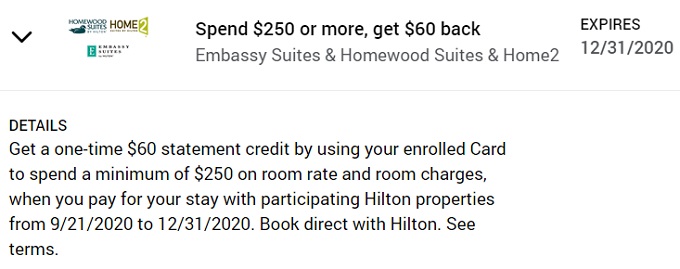A month ago I wrote a post sharing which credit cards we use to pay for hotel stays (see: Living In Hotels: These Are The Credit Cards We Use To Pay For Stays).
That was a partial answer to the following question we received from a reader:
Question for you – when you stay at hotel, how do you pay for your stay? With their co branded credit card, a Chase Sapphire card for ultimate rewards points, Amex with the ability to earn membership rewards or do you pay with points? How do you decide?
That previous post addressed which cards we used to pay for stays, but it didn’t explain how we decide whether to pay with cash versus using our hotel points. I therefore thought it would be good to write a post explaining how we decide whether to use cash or points for our hotel stays. It’s a little hard to explain the full process as there’s so much which goes into the equation, but here are many of the factors I consider.

Total Cost
If we can book a hotel stay for less than $75 per night including taxes, we’ll usually pay with cash. That’s because with such a relatively low cost, it’s unlikely that using points would prove to be good value.
Our road trip budget is $100 per day, but that has to include gas, food, activities, etc. While spending $75 every night isn’t sustainable budget-wise (we only paid ~$25 per night on average in 2019), it’s rare that we’ll find low rates in every place we visit. As a result, we might spend $75 per night for a week or two, but we’ll then use points for the next week or two which lowers the average cost fairly significantly.
Number Of Points Required
Another big factor in my calculations is how many points would be needed for a free night. That number of points will differ depending on which hotel chain I’m looking at as hotel points have different values. For example, 30,000 points can get you a free night at a luxury property with Hyatt (e.g. the Park Hyatt New York), or a mid-range Hampton Inn (one of Hilton’s brands).
To give you a better idea of how much hotel points are worth, check out Frequent Miler’s post about Reasonable Redemption Values. I value points a little differently, but for the most part it’s an accurate representation of how much points are worth in each program relative to each other. For example, I value Hyatt points at 3-4x the value of Hilton points, Marriott points higher than IHG points, etc.
To maximize our points, we try to redeem points at lower category levels in order to make them last longer. That means we don’t stay at nicer hotels unless we have free night certificates which don’t use actual points. I’ve written before about how we maximize our points, so check out this post for more: 2.5 Million Hotel Points: Here’s How Many Free Nights We’ll Get.

Number Of Nights We’ll Be Staying
One of the things I mentioned in that post about how we maximize points is that some hotel chains offer every 4th or 5th night free on award stays. For example, if you have an IHG Premier credit card, you get every 4th night free when using points. Marriott and Hilton meanwhile offer every 5th night free when using points, although Hilton only offers that benefit to members with status (which you can get for free with one of their credit cards, including the one which doesn’t have an annual fee).
When we’re planning out our schedule, if we’re planning on spending some multiple of 4 nights somewhere, I’ll look first at IHG stays. For stays of 5, 10, 15, etc. nights, I’ll first look to see if Marriott or Hilton have a property which costs a reasonable amount of points as we’ll also be able to get every 5th night free.
Another way that the number of nights we’ll be staying can influence our choice is if we’re only spending one or two nights somewhere. While I prefer to not spend much more than $75 per night including tax, if we’re only spending a night or two somewhere then spending a little more doesn’t put as much pressure on our budget. Having said that, we have a number of free night certificates we get each year when renewing some of our hotel credit cards, so one or two night stays can sometimes be a good use of those.
Pet Fee
The pet fee we’d pay doesn’t tend to play a huge factor in whether we’d stay somewhere using cash or points, but it can occasionally influence decisions.

For example, let’s say we need to stay somewhere for a couple of nights. There might be somewhere that’s good value when using points, so ordinarily we’d book that way to save money. However, if they had a pet fee of $150, we wouldn’t stay there as that would work out to be an average $75 per night just because we have Truffles with us.
In that kind of scenario, we might choose to pay $90 per night somewhere different which doesn’t have a pet fee. While that would cost us $180 rather than $150, we’d be saving two nights worth of points, plus paying for the stay means we’d also earn points.
Amex Offers / Chase Offers
Both American Express and Chase have special offers on their credit cards called Amex Offers and Chase Offers respectively. These offer savings or rewards based on spending a certain amount, or offer a percentage back as a statement credit based on what you’ve spent. For example, you might get an Chase Offer giving 10% back when paying for a stay with IHG, or a Hyatt Amex Offer giving $50 back when spending $250 or more.
These kinds of savings can influence whether we book a paid stay or an award stay, especially if both Shae and I have offers on our card. For example, we recently stayed a couple of weeks at an Embassy Suites which is one of Hilton’s brands. We each had an Embassy Suites Amex Offer which gave $60 back when spending $250 or more. The hotel let us pay using a few different credit cards, so we put $250 on one card, $250 on another and the balance on a Hilton credit card. That meant we got two sets of $60 statement credits for a total of $120 back, with the balance put on the Hilton card earning 14 points per dollar.
Being able to get that much money back as a statement credit can certainly affect the calculations when deciding whether to pay with cash or points.

Hotel Promotions
Hotels often run promotions to encourage you to stay with them; that might be to choose them over one of their competitors, or just to encourage you to book a stay in the first place.
The fact that we live in hotels and Airbnbs means we often take advantage of these promotions. While it therefore doesn’t affect whether we’d be staying in a hotel or not, it can influence our decision in who we stay with when there’s a particularly lucrative promotion.
For example, I was recently planning on booking a one night stay at a La Quinta seeing as they didn’t have a pet fee. However, I was targeted for a new IHG promotion which meant that even though the stay with IHG was a little more expensive, it made sense to book the stay with them due to all the bonus points we’d receive. I wrote more about that over on Frequent Miler, so check out this post for how those calculations went.
It’s not only on paid stays that hotel promotions can affect how we book our stays, because hotel chains sometimes run promotions when booking award stays. For example, Hyatt is currently offering a 15% points rebate when redeeming points, or a 25% rebate if you have a Hyatt credit card. We usually book Hyatt award stays at the category 1 level which requires 5,000 points. Getting a 25% points rebate means the net cost is 3,750 points which is fantastic value for a free night.
Shopping Portal Earnings
If you ever shop online, you should click through to websites from shopping portals like TopCashback, Rakuten, etc. That’s because most online retailers pay commission to these shopping portals who then share some or all of that commission with you.
It’s not only retailers like Best Buy, Macy’s and Nike that do this. Many travel companies offer cashback, including several hotel chains. Hyatt is a notable exception, but IHG, Marriott, Hilton, Choice and Wyndham all offer cashback through shopping portals.
The rates aren’t always fantastic – often in the 1-3% range – but sometimes one or more portals will increase the rate. We’ve seen rates go up to 10% for IHG and Marriott at times which could affect whether or not it’s worth booking a paid stay at one of these chains versus using points.
Seeing as shopping portals offer different rates, it’s best to compare rates using Cashback Monitor.
Summary
Choosing whether to pay for our hotel stays using cash or points means we have to consider a whole bunch of factors. There isn’t always a clear choice between options, so if we can get good value by either paying with cash or using points, we’ll usually use points to help with our budget.
Leave a Reply